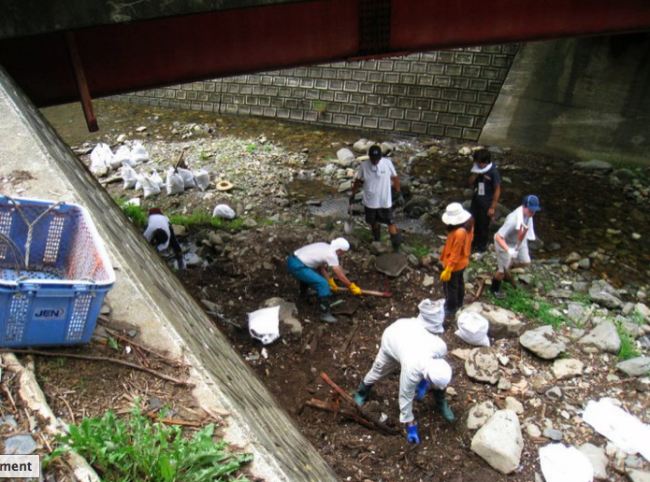
In the summer of 2011, Professor Jeff Bayliss traveled to Japan to assess the social, political, economic and cultural impact of the tsunami in Japan.
Here’s an excerpt from his blog: Where Does It All Go?: An Aftermath Travelogue:
“One thing that struck me repeatedly while I was in Tohoku was how the disaster seemed to still be going on for many of the people in the hisaichi, and in many different ways. I’m sure it seems odd to put it like that. The last waves have of course long since receded, and in most areas the chaotic clutter of debris has at least been cleared and placed in tremendous piles that represent the first big step in salvaging order from chaos. Even for the most dislocated of the survivors, the hinanjo shelters too are poised to become a thing of the past, meaning that they will be on their way to regaining their privacy and – with any luck – financial independence as well. And yet, the landscape in the hisaichi still looks like a bizarre moonscape in parts, with busted buildings and the naked foundations of now absent structures everywhere one looks. On the psychological level, too; survivors still seem to want to talk about the early days, whether to “outsiders” or among themselves, as if the things they experience are still replaying in their heads. Many do so in a way that suggests a sense of awe at what they witnessed, but otherwise they seem to have come to terms with it. Deep down, however, I doubt this is the case; they replay the events because they are still searching for something in them, some element of meaning, perhaps, that once found will allow them to relegate March 11th and its aftermath to the realm of memories that don’t have to constantly be recalled and relived – if that is possible for events of such enormity. For others, however, the need to recall and relive what they say is more like the curse we outsiders might expect it to be; they would rather forget, but can’t.”
For more insight and information, go HERE.